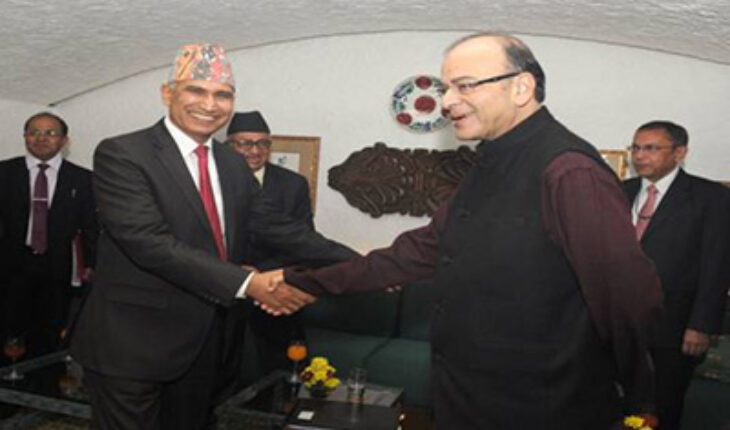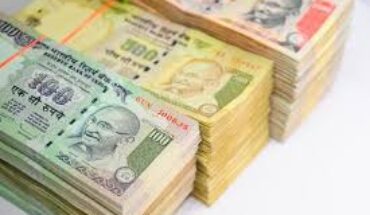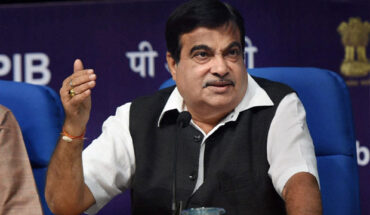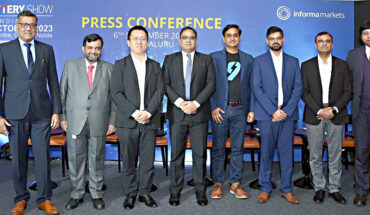New Delhi is considering to assist the neighbouring country by increasing investments in sectors such as power, healthcare and roadways
NEW DELHI: There is scope for increasing India’s investment in Nepal in sectors such as power, healthcare and roadways as the neighbouring country sought assistance in setting up a special infrastructure development bank, Finance Minister Arun Jaitley has said.
Jaitley, at his luncheon meeting with Nepalese counterpart Bishnu Prasad Paudel, asked him to finalise the country’s post-earthquake reconstruction programme at the earliest to better utilise $1 billion assistance pledged by India. The meeting comes ahead of Nepal Prime Minister K P Sharma Oli’s likely visit to India on February 19, his first foreign trip as the country’s premier. For the rebuilding of Nepal post earthquake, India had extended $1 billion in assistance at a donors’ conference in Kathmandu in June. A statement issued by the Finance Ministry said Jaitley during the meeting expressed hope that Indian investors in the public and the private sector will show interest across all sectors in Nepal, especially power, healthcare and road construction. Paudel, the statement said, thanked India for the “tremendous assistance extended by the Indian government to Nepal in its hour of need”. “Nepal is planning to establish a special infrastructure development bank and sought India’s help in this regard,” the statement added. As India and Nepal look to normalise ties after months of tense relations, Paudel, on a two-day visit, had yesterday met External Affairs Minister Sushma Swaraj. According to the sources, during the meeting, Swaraj said India is looking forward to Oli’s visit as it could “further strengthen” the bilateral ties. Oli is scheduled to hold comprehensive talks with Prime Minister Narendra Modi on February 20 on key regional and bilateral issues, the sources said. Ties between the two countries had soured following Nepal adopting its new Constitution in September. Sections of the Nepalese population — Tharus, Madhesis and Janjatis — saw the new Constitution as discriminatory that would lead to their “political marginalisation”. New Delhi wanted amendments to those sections seen as discriminatory. — PTI






